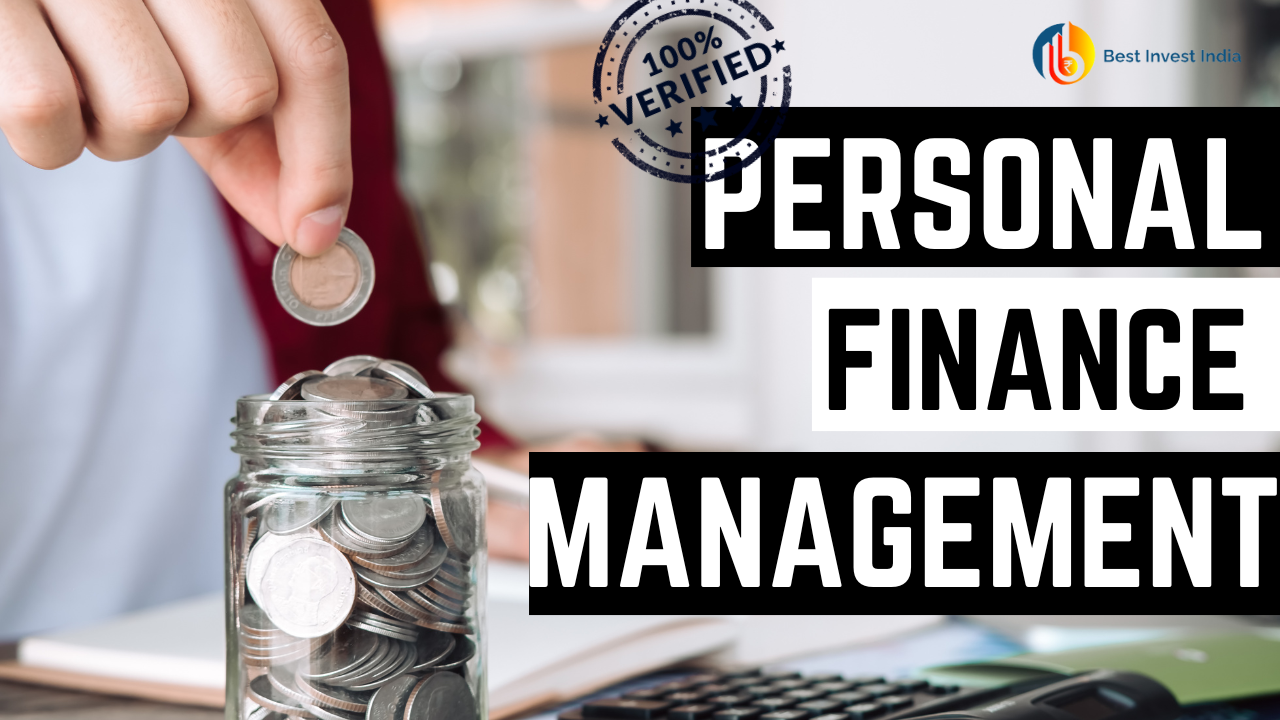Getting started with Personal Finance and investing may look like daunting and tedious work, to start with. Plenty of investment options, types, and subtypes make it further complicated to start with.
It looks almost impossible to figure out what exactly to do with money. This personal finance guide will simplify the basic personal finance management and investing journey.
Table of Contents
Step by Step Approach to Personal Finance Management
- Understanding Personal Finance
- Setting Financial Goals
- Creating a Budget
- Building an Emergency Fund
- Understanding and Managing Debt
- Basics of Investing
- Types of Investments
- Retirement Planning
- Seeking Professional Advice
- Continuous Learning and Adaptation
1. Understanding Personal Finance
Managing money for individuals or Personal finance is crucial. Personal finance management includes strategies like budgeting, saving, investing, Future goal planning and achieving them with ease.
The basic components of personal finance are:
Income- Earnings from work, investments, or other sources.
Expenses- Day-to-day expenses, bills, premiums, EMIs and other expenses
Savings- Money kept aside for future needs
Investments- Money invested for income or appreciation.
Safety covers- Life insurance, health insurance ,accidental & critical care insurance cover.
Debt- Money borrowed that needs to be repaid with interest.
2. Setting Financial Goals
Setting Financial Goals is probably the first step towards managing your personal finances. In other words, I can say it is the best and right approach.
Steps to set goals
- Set clear SMART financial goals. (Specific, Measurable, Achievable, Relevant, Time-bound)
- Shortlist goals into short-term (less than 3 years ), medium-term (between 3-7 years ), or long-term (more than 7/8 years).
- Choose appropriate investments based on duration, risk, market outlook and goals.
3. Creating a Budget
Wealthy may say, well, we don’t need a budget. But my dear friend it helps you to understand your surplus and deficits. This will help you to save more, and reduce unnecessary wasteful expenses.
A good budget plan helps you track income and expenses and saves you from wasteful expense habits.
Steps to create a budget
- Calculate your monthly income-Include income from all sources like salary/business, rental income, pension or other income
- List your monthly expenses- Categorize them into fixed (rent, utilities) and variable (groceries, entertainment) expenses.
- Subtract expenses from income-: This will show you whether you have a surplus or deficit.
- Adjust accordingly- In case of a deficit, find areas to cut back. If you have a surplus, allocate it to savings or debt repayment.
4. Building an Emergency Fund
An emergency fund aka contingency fund or backup fund is the one thing that is required. It adds financial security to your armour.
Aim to save at least 3-6 months’ worth of living expenses. If possible, have 6-24 month expenses.
This fund acts as a safety net during unexpected events like job loss or medical emergencies.
5. Understanding and Managing Debt
Managing debt is essential for financial health. Prioritise paying high-interest debt (like credit card debt) and make consistent payments. Consider the debt avalanche method (paying off debt with the highest interest rate first) or the debt snowball method (paying off the smallest debts first) and become debt-free.
6. Basics of Investing
Investing money is essential since it helps you grow wealth over time. Here are some basic principles:
- Start Early – The earlier you start investing, the more time your money has to grow. Read more
- Diversify- Diversify/Spread investments across different asset classes such as stocks, bonds, and real estate to reduce risk.
- Understand Risk-Higher returns typically come with higher risk. Assess your risk tolerance and invest accordingly.
- Stay Informed- Keep learning about investment options and market trends.
- Review & periodic realignment with goals- Markets are dynamic and so are the investments. Periodic review is essential for smooth returns.
7. Types of Investments
- Stocks– Stocks are nothing but it is part ownership in a company. Stocks may offer high returns but come with high risk.
- Bonds-Loans to the government or corporations. They provide regular interest payments and are considered safer than stocks.
- Mutual Funds– Mutual funds are the pooled funds managed by professional fund manager. They offer diversification and are suitable for beginners.
- Real Estate– Property investment can provide rental income and capital appreciation.
- ETFs (Exchange-Traded Funds)-These funds are just like mutual funds but these are traded like stocks. They offer low fees and diversification.
- Small Saving Schemes– Post office small saving schemes offer safe and secure returns. Suitable for various needs such as one-time deposits, regular income, monthly income, recurring deposits, money doubling schemes, girl child welfare schemes etc.
8. Retirement Planning
Start saving for retirement as early as possible. Contribute to retirement accounts such as NPS, SBI Mitra SIP, ICICI Prudential Freedom SIP, LIC Pension Plans, SBI pension plans, ICICI Prudential Guaranteed Pension Plan Flexi- Should You Buy? etc. Understand the power of compounding, which can help investments grow exponentially over time.
9. Seeking Professional Advice
If you’re unsure where to start, consider seeking advice from a financial advisor. They can help you create a personalized financial plan, assess your risk tolerance, and guide your investment decisions.
10. Continuous Learning and Adaptation
Personal finance and investing are lifelong journeys. Stay informed by reading books, following financial news, and joining communities like Quora Spaces focused on personal finance and investing. Adapt your strategies as your financial situation and goals evolve.
Final Thoughts
Getting started with personal finance and investing is about building a strong foundation. By setting clear goals, creating a budget, managing debt, and making informed investment decisions, you can achieve financial stability and growth. Remember, the key is to start early, stay disciplined, and continuously educate yourself. Happy investing!









